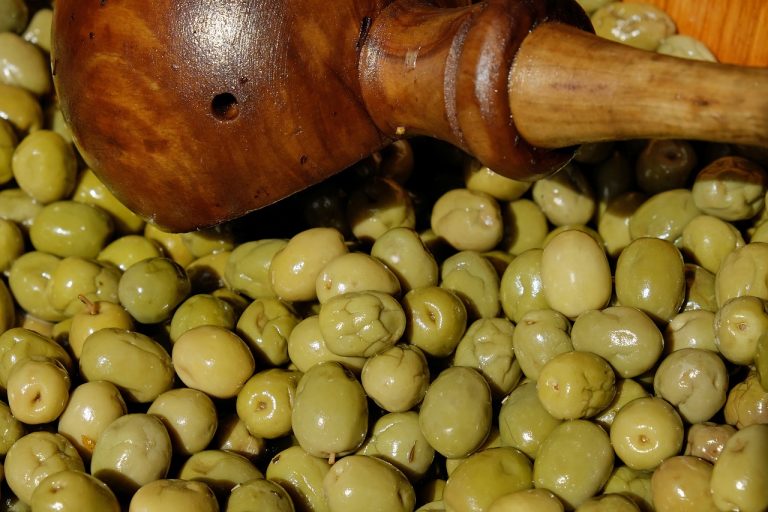Olives are associated mainly with Mediterranean cuisine. Not without reason. Both olive oil and olives are an integral part of it. Olives work great with white cheeses (especially in salads), as an excellent snack, and a great addition to sandwiches, pizzas, meat dishes and fish. Olives are not only tasty but also healthy. Why should you eat them?
Basic information
Olives come from Palestine and Syria. In the Mediterranean area, olives have been cultivated for 4,000 years. It was only after the Americans perfected the olive-growing and olive-oil methods that became popular throughout the world, including in UK.
Olives are available in many varieties. Their colour has nothing to do with them, however. So where do green olives or black olives come from? The differences are due to the degree of maturity and the type of industrial processing. Black olives are more mature than green olives. Green olives are harvested earlier. Therefore, black, ripe olives have less bitterness and more mineral compounds. Green olives are protected from air - they do not ripen and do not change colours. Black olives have access to air and under the influence of the oxidation process change the colour from green to black.
Why add olives into your diet?
- They contain healthy oleic acid
- Oil contained in olives is a desirable component of the diet.
It’s responsible for reducing the activity of the gene responsible for breast cancer, protecting the heart and blood vessels. Regular consumption of oleic acid reduces the risk of cardiovascular disease.
- They are low in calories
- People on a diet do not have to worry about olives
They can add them into their menu without a problem. They are low calorie and contain a lot of fibre, so they bring the feeling of satiety after a meal. 100 grams supplies about 150 kcal. 10 olives weigh about 25 g and provide about 30 kcal.
- They contain a lot of valuable minerals and vitamins
- Olives are rich in B vitamins, provitamin A, and vitamins C and E.
- Vitamin content has a great effect on the condition of the skin, hair and nails
Vitamins C and E are essential antioxidants in the fight against free radicals.
- You should also pay attention to mineral compounds
In olives we will find potassium, magnesium and calcium.

They are a natural probiotic
Fresh, cut straight from the olive tree are bitter and unfit for food. That is why they are usually eaten in fermented form. They have all the advantages of silage, and thus have a beneficial effect on the digestive system, bacterial flora, and also on the strengthening of immunity. For olives to have a probiotic effect, buying them, we must pay attention to whether they are in brine or vinegar. The brine is suitable for natural fermentation.
They are considered a natural aphrodisiac
In the mythology and art of the Mediterranean peoples olives are considered a symbol of youth and fertility. In conclusion, due to the valuable ingredients, it’s definitely worth incorporating olives into your diet. They will certainly also enrich the taste of some of your dishes.







One Comment